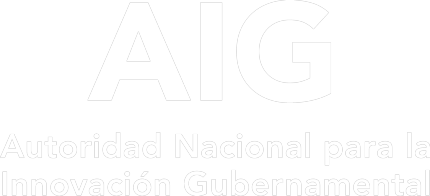Mexico City, 7 July 2025. The CopernicusLAC Panama Centre, on behalf of the European Space Agency (ESA) and in close collaboration with the National Centre for Disaster Prevention of Mexico (CENAPRED) and the Delegation of the European Union to Mexico, is conducting a regional training on Remote Sensing applied to environmental protection and forest management. The course runs from 7 to 11 July at the CENAPRED facilities, located south of Mexico City.
27 participants from Mexican institutions, as well as representatives from Chile, Peru, Guatemala and Panama are being trained in intermediate and advanced Earth Observation tools. This comprehensive programme is designed to create a deeper understanding of the fundamental role of Earth Observation in environmental protection. Participants will explore how to use the free and open data and tools provided by the Copernicus programme to monitor, analyse and address pressing environmental issues, and how to devise sustainable solutions. The combination of theoretical input, hands-on training and case studies will equip individuals with the skills to use technologies for informed decision-making and proactive environmental management.
In addition, by delving into the vast potential of Copernicus data, attendees will gain skills in forest ecosystem monitoring and assessment, enabling them to improve their land management, biodiversity conservation and resilience.

The opening ceremony was attended by Ms. Luisa H. Solchaga López, Director General of Cooperation Policy of the Mexican Agency for International Development Cooperation (AMEXCID), part of the Secretariat of Foreign Affairs. She recognised Copernicus as the main provider of satellite information in emergency situations, as she has been able to observe through the area of Humanitarian Aid and Disaster Risk, which is the responsible for promoting this course.
She also stated that “it is through learning and the exchange of knowledge that we all become stronger, something that we promote in all technical and scientific cooperation projects is that students should be able to replicate this in their respective countries, we must train future trainers.”
At the welcoming ceremony, Dr. Claudia Herrera, Stakeholder Liaison Officer of the CopernicusLAC Panama Centre, said: “From its headquarters in Panama, the CopernicusLAC Centre works in coordination with national, academic, technical and civil protection institutions to reinforce local capacities, develop services adapted to real needs, and contribute to risk management and environmental planning based on scientific evidence and satellite data. The Centre also has a clear focus on inclusion, sustainability and regional cooperation.”
Eng. Enrique Guevara Ortiz, highlighted that “the information provided by Copernicus was invaluable in dealing with the emergency during the passage of Hurricane Otis in 2023, an event that, according to the economic impact assessment carried out by CENAPRED, reached 84 billion Mexican pesos.” He assured that thanks to Copernicus it was possible to identify, in addition to the devastated housing areas, the damage to the environment and forest cover caused by the category 5 hurricane.


He also emphasised that risk management is a cross-cutting issue, which touches all government agencies, which is why he invited specialised technical staff from different Mexican institutions to receive the training.
About the National Centre for Disaster Prevention (CENAPRED)
It is the Mexican institution responsible for providing technical advice to the National Civil Protection System on disaster prevention issues. It carries out monitoring and research on natural and anthropic phenomena which may represent a risk in national territory, as well as the promotion of public policies that have an impact on risk reduction and the strengthening of a more resilient Mexico.
About the CopernicusLAC Panama Centre
The activities of the Centre fall within the overall context of the EU-LAC Digital Alliance, which is a strategic framework to promote cooperation between the European Union (EU) and the Latin America and Caribbean (LAC) region on digital and space issues under the umbrella of the EU Global Gateway strategy. In this context, the European Space Agency (ESA) coordinates the implementation of the Centre on the basis of a Contribution Agreement with the Directorate General for International Partnerships (DG INTPA) of the European Commission, and in close collaboration with the Government of Panama, the MIRE (Ministry of Foreign Affairs) and the SENACYT (National Secretariat for Science, Technology and Innovation).
The CopernicusLAC Panama Centre will serve as a platform for innovation in the Latin America and Caribbean region, supporting national and local entities in leveraging Copernicus data and information to enhance socio-economic benefits and resilience. The Centre provides opportunities for engagement and is developing tailor-made geospatial Pilot Services (addressing hydrometeorological hazards, geological hazards and risk exposure services), which are developed in close collaboration with local users and stakeholders, to whom they will be delivered to ensure that the unique needs of the region are addressed in the long term.
In addition, knowledge and skills transfer is a key element of the CopernicusLAC Panama Centre, which hosts a Digital Campus with access to training modules and educational resources for technical users and citizens alike. The Centre will also organise community-building events, policy dialogues and industry matchmaking, as well as hackathons and other Earth observation (EO) data challenges to stimulate user adoption of Copernicus data and innovation. These events will also foster cross-collaboration of EO, Disaster Risk Reduction (DRR) and other relevant ecosystems.
Finally, the Centre will include the development of high-powered infrastructure and cloud computing for the LAC region. One of the ultimate objectives of the Centre is also to promote the development of communities of practice and strengthen capacities in the public sector, academia, the private sector and within social organisations in the knowledge and use of tools for DRR and other areas.





